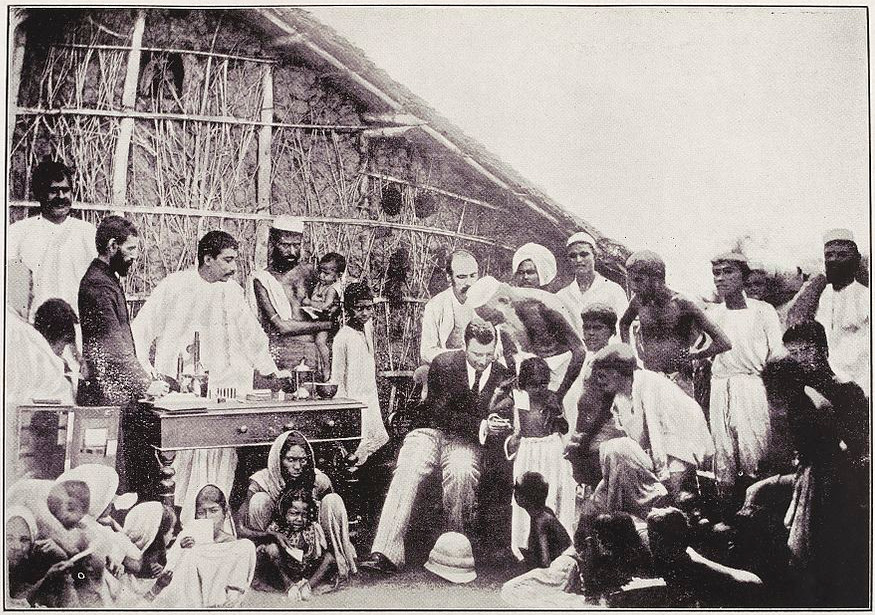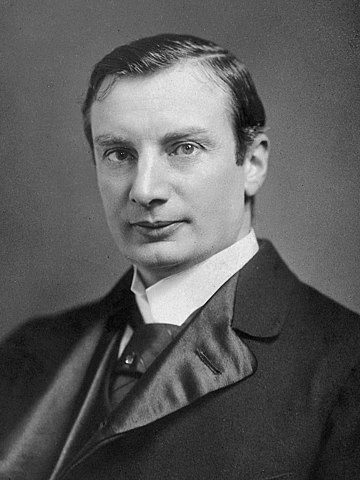341-An Overlooked Bacteriologist
Futility Closet
Greg Ross
4.8 • 748 Ratings
🗓️ 3 May 2021
⏱️ 31 minutes
🧾️ Download transcript
Summary

In the 1890s, Waldemar Haffkine worked valiantly to develop vaccines against both cholera and bubonic plague. Then an unjust accusation derailed his career. In this week's episode of the Futility Closet podcast we'll describe Haffkine's momentous work in India, which has been largely overlooked by history.
We'll also consider some museum cats and puzzle over an endlessly energetic vehicle.
Intro:
The Galveston hurricane of 1915 carried 21,000-pound buoy 10 miles.
Lillian Russell designed a portable dresser for touring actresses.

Sources for our feature on Waldemar Haffkine:
Selman A. Waksman, The Brilliant and Tragic Life of W.M.W. Haffkine, Bacteriologist, 1964.
Waldemar Mordecai Wolffe Haffkine, Anti-Cholera Inoculation, 1895.
Tilli Tansey, "Rats and Racism: A Tale of US Plague," Nature 568:7753 (April 25, 2019), 454-455.
Yusra Husain, "Lucknow: Bubonic Plague Vaccine and a 123-Year-Old Family Tale," Times of India, July 29, 2020.
Stanley B. Barns, "Waldemar Haffkine and the 1911 Chinese Pneumonic Plague Epidemic," Pulmonary Reviews 13:3 (March 2008), 9.
Jake Scobey-Thal, "The Plague," Foreign Policy 210 (January/February 2015), 24-25.
Marina Sorokina, "Between Faith and Reason: Waldemar Haffkine (1860-1930) in India," in Kenneth X. Robbins and Marvin Tokayer, eds., Western Jews in India: From the Fifteenth Century to the Present, 2013, 161-178.
Pratik Chakrabarti, "'Living versus Dead': The Pasteurian Paradigm and Imperial Vaccine Research," Bulletin of the History of Medicine 84:3 (Fall 2010), 387-423.
Barbara J. Hawgood, "Waldemar Mordecai Haffkine, CIE (1860–1930): Prophylactic Vaccination Against Cholera and Bubonic Plague in British India," Journal of Medical Biography 15:1 (2007), 9-19.
Myron Echenberg, "Pestis Redux: The Initial Years of the Third Bubonic Plague Pandemic, 1894-1901," Journal of World History 13:2 (Fall 2002), 429-449.
Natasha Sarkar, "Plague in Bombay: Response of Britain's Indian Subjects to Colonial Intervention," Proceedings of the Indian History Congress 62 (2001), 442-449.
Ilana Löwy, "From Guinea Pigs to Man: The Development of Haffkine's Anticholera Vaccine," Journal of the History of Medicine and Allied Sciences 47:3 (July 1992), 270-309.
Eli Chernin, "Ross Defends Haffkine: The Aftermath of the Vaccine-Associated Mulkowal Disaster of 1902," Journal of the History of Medicine and Allied Sciences 46:2 (April 1991), 201-218.
Edythe Lutzker and Carol Jochnowitz, "The Curious History of Waldemar Haffkine," Commentary 69:006 (June 1980), 61.
W.J. Simpson, "Waldemar Haffkine, CIE," British Medical Journal 2:3644 (1930), 801.
Waldemar Mordecai Haffkine, "A Lecture on Vaccination Against Cholera: Delivered in the Examination Hall of the Conjoint Board of the Royal Colleges of Physicians of London and Surgeons of England, December 18th, 1895," British Medical Journal 2:1825 (1895), 1541.
Waldemar Mordecai Haffkine, "On Preventive Inoculation," Proceedings of the Royal Society of London 65:413-422 (1900), 252-271.
Waldemar Mordecai Haffkine and W.J. Simpson, "A Contribution to the Etiology of Cholera," Indian Medical Gazette 30:3 (1895), 89.
Waldemar Mordecai Haffkine, E.H. Hankin, and Ch. H. Owen, "Technique of Haffkine's Anti-Choleraic Inoculations," Indian Medical Gazette 29:6 (1894), 201.
Andrew Scottie, "The Vaccine Passport Debate Isn't New: It Started in 1897 During a Plague Pandemic," CNN Wire Service, April 14, 2021.
"How the World's Race for Vaccination Was Won," [Surry Hills, N.S.W.] Daily Telegraph, Feb. 23, 2021.
Joel Gunter and Vikas Pandey, "Waldemar Haffkine: The Vaccine Pioneer the World Forgot," BBC News, Dec. 11, 2020.
Vikram Doctor, "The Risks and Rewards of Human Trials," [New Delhi] Economic Times, May 9, 2020.
Donald G. McNeil, Jr., "Can the Government Require Vaccinations? Yes," New York Times, April 11, 2019.
Henry Marsh, "The Sniping Scientists Whose Work Saved Millions of Lives," New York Times, Sept. 3, 2018.
William F. Bynum, "Review --- Books: Anxieties Immune to Reason," Wall Street Journal, Aug. 18, 2018.
Faye Flam, "Please Don't Try This Biohacking at Home," Chicago Tribune, June 8, 2018.
Ashlin Mathew, "Falling Into the Rattrap," [Noida] Mail Today, April 5, 2015.
Nicholas Bakalar, "Milestones in Combating Cholera," New York Times, Oct. 1, 2012.
"Death of Dr. Haffkine," [Perth] Westralian Judean, Feb. 1, 1931.
"Neglect of Genius," [Brisbane] Telegraph, May 12, 1923.
"A Scientist From India," [Victoria] Jewish Herald, Nov. 5, 1915.
"Dinner to Dr. Haffkine," Hebrew Standard of Australasia, July 28, 1899.
Ernest Hart, "Fighting Cholera on the Ganges," Salt Lake Herald, Nov. 2, 1896.
Listener mail:
Quite Interesting, "Last week, the Union of Museum Cats was established ...," Twitter, March 3, 2021.
Lana Svetlova, "The First Trade Union of Museum Cats in Russia Was Decided to Be Created in St. Petersburg," MKRU St. Petersburg, April 26, 2021.
"Hermitage Cats," Wikipedia (accessed April 21, 2021).
"Frenchman Leaves Inheritance to St. Petersburg's Hermitage Cats," Moscow Times, Dec. 3, 2020.
Alexander Marquardt, "St. Petersburg's Hermitage Museum Home to Masters ... and Cats," ABC News, July 21, 2010.
Teresa Levonian Cole, "St Petersburg: The Cats of the Hermitage," Telegraph, May 23, 2013.
Mary Ilyushina and Amy Woodyatt, "A French Man Has Left Money to 50 Cats Who Live in Russia's Hermitage Museum," CNN, Dec. 7, 2020.
"Hermitage Museum," Wikipedia (accessed April 24, 2021).
Mikey Smith, "No10 Staff Told to Cut Down on Treats for Larry the Cat as He Piles on Lockdown Pounds," Mirror, March 9, 2021.
Justin Ng, "Just seen @Number10cat see off a fox ...," Twitter, April 20, 2021.
Sam Baker, "The Fur Flies at Number Ten: Larry the Downing Street Cat Sees Off Rival FOX in Scrap Behind Prime Minister's Home," Daily Mail, April 20, 2021.
This week's lateral thinking puzzle was contributed by listener Sam Tilley, who sent this corroborating link (warning -- this spoils the puzzle).
You can listen using the player above, download this episode directly, or subscribe on Google Podcasts, on Apple Podcasts, or via the RSS feed at https://futilitycloset.libsyn.com/rss.
Please consider becoming a patron of Futility Closet -- you can choose the amount you want to pledge, and we've set up some rewards to help thank you for your support. You can also make a one-time donation on the Support Us page of the Futility Closet website.
Many thanks to Doug Ross for the music in this episode.
If you have any questions or comments you can reach us at [email protected]. Thanks for listening!
Transcript
Click on a timestamp to play from that location
| 0:00.0 | Welcome to the Futility Closet Podcast, forgotten stories from the pages of history. |
| 0:15.0 | Visit us online to sample more than 11,000 quirky curiosities from a restless buoy to a portable dresser. |
| 0:21.7 | This is episode 341. |
| 0:23.6 | I'm Greg Ross. |
| 0:24.6 | And I'm Sharon Ross. |
| 0:26.6 | In the 1890s, Voldemort Hauphkin worked valiantly to develop vaccines against both cholera and bubonic plague. |
| 0:33.6 | Then an unjust accusation derailed his career. In today's show, we'll describe Hoffkin's |
| 0:39.9 | momentous work in India, which has been largely overlooked by history. We'll also consider some |
| 0:46.1 | museum cats and puzzle over an endlessly energetic vehicle. |
| 0:57.2 | Waldemar Hathkeen was the fourth of five children born to a Jewish schoolmaster in what is now |
| 1:02.8 | Ukraine. |
| 1:03.9 | He graduated in zoology from the University of Odessa in 1884, but was barred from a |
| 1:09.5 | professorship there because the government had begun |
| 1:11.7 | cracking down on members of the intelligentsia following the assassination of Sars Alexander |
| 1:16.8 | II. Instead, he emigrated, first to Switzerland and the University of Geneva, then in 1889, |
| 1:23.7 | to the newly established Pasteur Institute in Paris, which was becoming the world's leading |
| 1:28.3 | center of research in bacteriology. Practical bacteriology was then in its infancy. We just saw |
| 1:34.8 | in episode 336 that tuberculosis was traced to a bacterium in this period. The same researcher |
| 1:41.0 | who'd made that discovery, the German microbiologist Robert Koch, |
| 1:44.8 | had found that another bacterium caused cholera, and the Pasteur Institute was making a special |
| 1:49.5 | study of vaccines to treat it. |
| 1:51.7 | Before this, cholera had been thought to travel in bad air, and it was assigned only broad |
... |
Please login to see the full transcript.
Disclaimer: The podcast and artwork embedded on this page are from Greg Ross, and are the property of its owner and not affiliated with or endorsed by Tapesearch.
Generated transcripts are the property of Greg Ross and are distributed freely under the Fair Use doctrine. Transcripts generated by Tapesearch are not guaranteed to be accurate.
Copyright © Tapesearch 2025.

